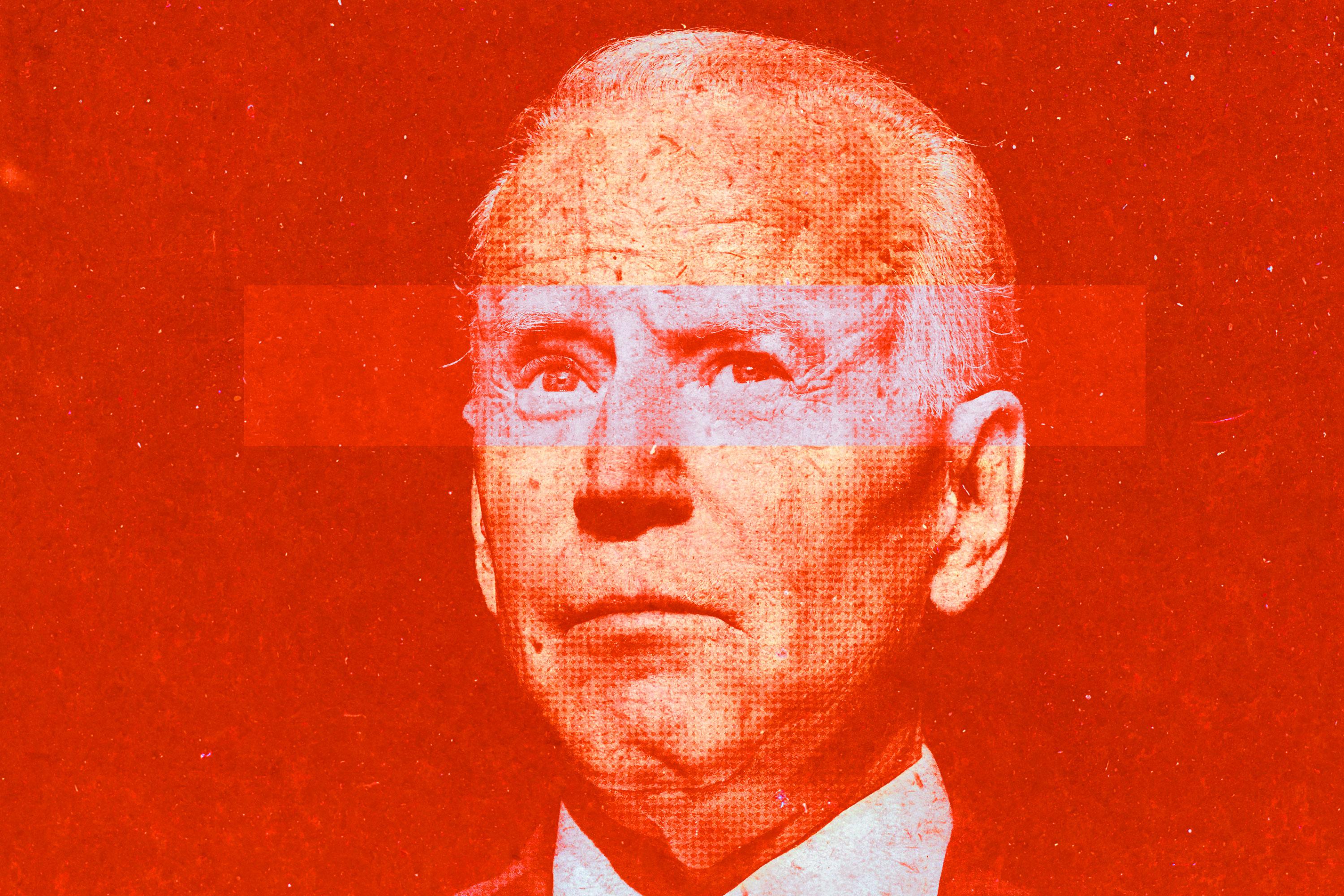Joe Biden and the “Too Good to Be True” Candidate
The former vice president—who is seriously considering a run for president—has come under intense scrutiny after two women came forward to discuss his history of overfamiliarity and unwanted touching. If he does run for office again, he will not outrun his own history.
Politicians cultivate power. They also cultivate legacies. These two priorities often grow at irreconcilable odds with one another. Soon, Joe Biden may or may not launch his third presidential campaign, a post he first ran for in the 1988 race, though he only persisted through September 1987 before dropping out, disgraced and distracted by a plagiarism scandal. Twenty years later, Biden once again sought his party’s nomination in the 2008 presidential election, where he strictly opposed a “government-run, single-payer” health care system and never exceeded single-digit support among Democratic voters in public polls. Ultimately, Biden won zero primaries, zero caucuses, zero delegates, ranking even with Dennis Kucinich and Mike Gravel before withdrawing from the race following the Iowa caucuses. He placed fifth.
Of course, Barack Obama rescued Biden from also-ran obscurity by selecting the Delaware senator as his running mate. As vice president, Biden peaked. The vice presidency is an ambiguous role, and Biden exploited the ambiguity to style himself as a vividly friendly, if nonetheless partisan figurehead. If Lyndon Johnson was Jack Kennedy’s pit bull, then Biden was Obama’s Shiba Inu, pugnacious only in a playful, adorable sense. Still, Biden’s playfulness proved honorable and, at turns, invaluable. As president, Obama succumbed to fatigue, irritation, and ambivalence about every great concern; Biden led the Obama administration’s charm offensive. He became Uncle Joe, the patriarchy’s friendliest face. Biden laughs. He smiles. He hugs. He touches. He seems harmless enough.
But Biden’s overfamiliarity with women alarmed Lucy Flores, a former Nevada assemblywoman—a Democrat—who recently recounted in New York magazine a November 2014 campaign rally where Biden slipped behind her, felt her shoulders, sniffed her hair, and kissed her head. “Why is the vice president of the United States touching me?” Flores wondered. She goes on to describe Biden’s behavior—familiar to anyone who has seen him nuzzling women and girls in public settings. “Biden was the second-most powerful man in the country and, arguably, one of the most powerful men in the world,” Flores writes. “He was there to promote me as the right person for the lieutenant governor job. Instead, he made me feel uneasy, gross, and confused. The vice president of the United States of America had just touched me in an intimate way reserved for close friends, family, or romantic partners—and I felt powerless to do anything about it.”
Following Flores’s essay, Amy Lappos, a Democratic congressional aide, told her hometown newspaper, the Hartford Courant, about a fundraiser where Biden rubbed noses with her. “I thought he was going to kiss me on the mouth,” Lappos says. She, too, stresses the broader importance beyond any specific objections to a Biden presidency. “There’s absolutely a line of decency. There’s a line of respect,” Lappos says. “Crossing that line is not grandfatherly. It’s not cultural. It’s not affection. It’s sexism or misogyny.”
Their common priority is clear: Flores and Lappos are not waging campaigns against Joe Biden. They are mounting a referendum on the culture which reproduces Joe Biden and empowers him above all other contenders. They are urging Biden’s admirers to reconsider his signature charm, upon which Biden’s legacy is very precariously built.
There’s an ugly truth about politics, in general, and about this particular case: Biden, an adorable figurehead, might have simply avoided scrutiny if he’d clearly declined to run for president once again. “Hearing Biden’s potential candidacy for president discussed without much talk about his troubling past as it relates to women became too much to keep bottled up any longer,” Flores writes.
It’s unfair to suggest, as many conservatives and many Biden supporters do, that no one objected to Biden’s behavior until now and that the timing itself suggests some cynical ploy to block a moderate Democrat from seeking or winning the party’s presidential nomination. It’s true, however, that the party and the press have only recently prepared themselves to have this particular conversation in this particular phase of U.S. history, regardless of Biden’s good standing. If Biden weren’t about to launch his third presidential bid, then Flores—who says she struggled to share her experience with Biden—might have withheld her account from publication. In any case, Flores says her November 2014 encounter with Biden changed how she saw the vice president; Flores didn’t resent Biden’s infamous charm until Biden happened upon her. The encounter was, for Flores, a new level of scrutiny, and the scrutiny changed everything. Biden is, for once, polling well as a Democratic presidential candidate, but he is hardly above scrutiny. Biden’s vice presidency lasted eight years, but his two terms were just one chapter in a political career that dates back half a century to the 1960s. This reckoning with Biden may seem sudden and somewhat arbitrary but so too was his popularity at its peak during the Obama years.
So far as Biden can be said to “suffer” an untimely “reckoning,” he does not suffer alone. Amy Klobuchar signaled her intention to run for president, and only then did national news publications, such as The New York Times and HuffPost, report out the old rumors about Klobuchar humiliating her staff in strange, disgusting ways. Beto O’Rourke, a golden boy when he was running against Ted Cruz, became a divisive subject only after his presidential campaign began. O’Rourke is running because he was so unambiguously popular; but he was only unambiguously popular because he wasn’t running for president. The scrutiny should discourage more candidates than it ever does. It is, in some cases, too much scrutiny to bear, and the scrutiny reveals some politicians—especially the safe bets, the people-pleasers—as too good to be true. John Edwards didn’t just lose the 2008 Democratic primaries; he destroyed his political career and, more importantly, his family. Edwards invited the press, and the rest of the country, to scrutinize him beyond comfort. Edwards now practices personal injury law at his firm back home in Raleigh.
On Sunday, Biden addressed Flores with a written statement. He says he has never, “not once,” meant to behave “inappropriately” with women. The new accounts, not to mention the old photo ops, suggest otherwise, even if the suggestions are more so about #MeToo, his role in Anita Hill’s testimony against Clarence Thomas, and patriarchy than they are about Biden’s physical presence. Biden might run, and Biden might indeed reconcile his old indulgences with standards of conduct; or else Biden might live to regret thinking his third time would be the charm. Biden’s boosters see his popularity, as quantified by a premature polling lead, as the reason he should run for president. But the high-water mark often underscores how tremendously far a candidate might fall.

